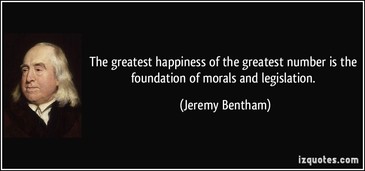 A law has recently been put into place that restricts abortion to six weeks after pregnancy. I believe that this policy is unjust, as it interferes with The Greatest Happiness Principle as it does not promote the most general happiness of society as possible. This is a controversial ruling and thus sparks many different and strong emotions in those who are impacted by it. For this reason, this law should be rationally debated under the conditions of utilitarianism, as it does not require individuals to start off by sharing common ground. I will make the argument that further restructuring the time warranted for abortions ultimately causes more harm to society because of its negative effects, and as a result, it reduces utility.
A law has recently been put into place that restricts abortion to six weeks after pregnancy. I believe that this policy is unjust, as it interferes with The Greatest Happiness Principle as it does not promote the most general happiness of society as possible. This is a controversial ruling and thus sparks many different and strong emotions in those who are impacted by it. For this reason, this law should be rationally debated under the conditions of utilitarianism, as it does not require individuals to start off by sharing common ground. I will make the argument that further restructuring the time warranted for abortions ultimately causes more harm to society because of its negative effects, and as a result, it reduces utility.
My philosophy places importance on the potential effects of an occurrence to determine its utility, so I will highlight how this political and social decision will cause more harm than good. In order to make a just decision, it is important to examine the course of history to understand what types of behavior have led to the most utility in the past. I will use the example of Roe v. Wade to demonstrate how our longstanding rights that have persisted across history to aid in our mutual happiness. This landmark ruling was made in 1973 and, over time, has consistently served utility to Americans, to the point in which nearly 75% of the American public is against it being overturned. This supports how a six-week restriction would harm the majority of America’s happiness considering that oftentimes women are not even aware that they are pregnant by this six-week deadline, and would then be unable to obtain an abortion.
I want to make it clear that I understand the strong sentiment on each side of this issue, however, to address those that oppose my assertion. I am not saying that abortion should not be restricted to some extent, but that the restrictions should not be so tight as to harm the pleasure of the majority. With this in mind, I would like those individuals to instead examine the drive of their sentiment, rather than writing off what they believe is right as the end-all-be-all without any rational debate or contemplation.
Along with this, I want to stress the importance of utilitarianism’s emphasis on the pleasure of all, not just the individual. If a reader disagrees with me, they must take into account that the initial internal desire of one should not be considered more important than the pleasure of the rest of the public. This decision should be made rationally by the public, rather than by a small group of people with a limited demographic. Even if the decision does make one happy initially, expediency does not mean that that decision is just. Short term happiness of a few is not what should determine such impactful decisions.
Overall, I understand that some may not agree with my standing, however, my philosophy stands by the fact that that the utility of all should be what is most important. Even if you may still disagree with a ruling that has longer limits for the time in which abortions may take place, if it is enforced, the few who disagree will eventually rationally consent once they realize it is good.
Utilitarianism and Abortion Restrictions
Comments Off on Utilitarianism and Abortion Restrictions
Filed under Mill
